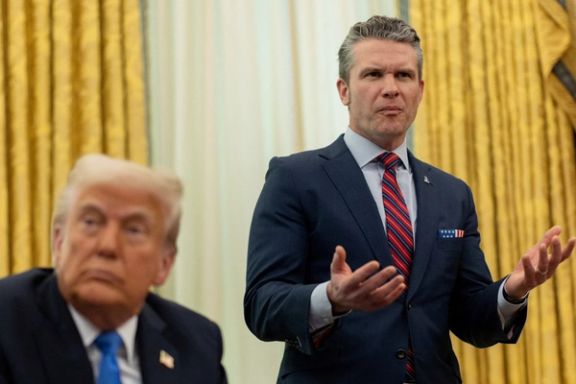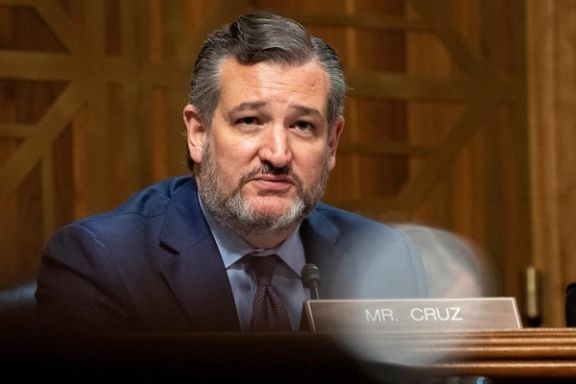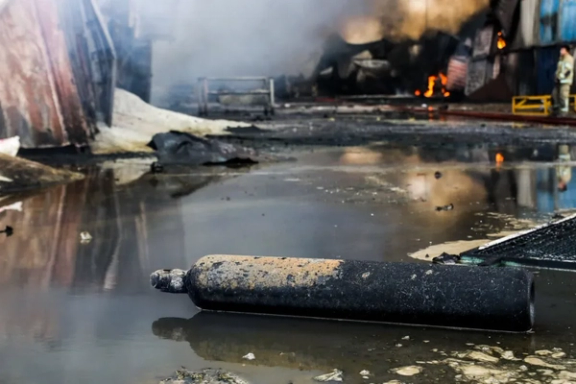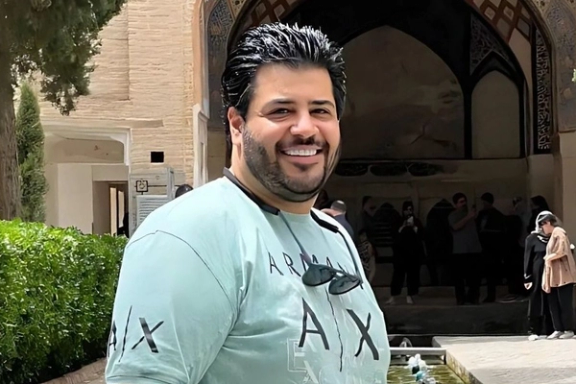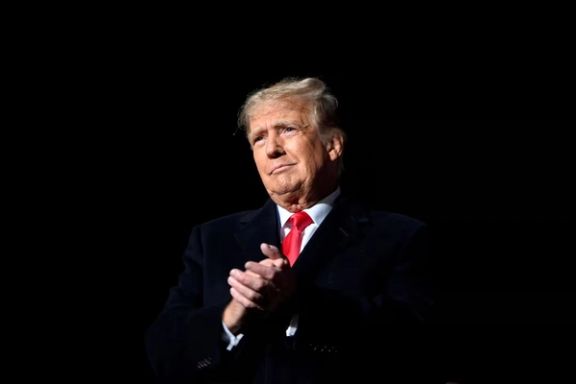After a stunning political comeback landed Trump back in the White House for a second term, the outcome of a typically Trumpian, bumpy dash for a deal is not yet known after 100 days.
Trump’s new term began with a reinstatement of his so-called “maximum pressure” campaign, this time aggressively targeting Iran’s energy and oil sectors, including Chinese importers and independent refineries processing Iranian crude.
Since Trump took office, the Iranian currency initially plummeted by 80,000 rials to the dollar. However, it has recently clawed back some value due to growing optimism around nuclear negotiations between Washington and Tehran.
This diplomatic track is being pursued alongside potential military contingency plans, with Trump repeatedly warning that if a deal is not reached, "there will be bombing."
"It will be bombing the likes of which they have never seen before," the president said during an NBC news interview in March.
Signs of military posturing are evident: strategic bombers positioned near Iran in Diego Garcia, a surge of US aircraft in Doha, and intensified strikes against the Iran-backed Houthis in Yemen—all serving as a backdrop to the ongoing negotiations.
'Rushed, inconsistent'
Trump’s Iran policy so far appears muscular but inconsistent, said retired Major General Andrew Fox in an interview with Iran International.
“Trump is showing military flex but he’s not using all the leverage America has,” Fox argued. “In terms of timing, the Iranian economy was already struggling. That could have been leveraged further. We saw the rial jump 20% as soon as the talks were announced—so potentially a negotiating lever was given away too easily."
Fox described Trump's approach so far as "mixed, rushed, and inconsistent."
“We know Trump values a deal above all else. He’s super anti-war. He doesn't like using the military lever of governance,” said Fox, now a research fellow at the Henry Jackson Society.
One reason for the haste may be Trump’s self-imposed 60-day deadline for reaching a nuclear agreement with Iran's Supreme Leader Ayatollah Khamenei. Trump issued this timeline in a letter delivered shortly after taking office, news outlet Axios reported.
Speed versus Substance
Holly Dagres, creator of the newsletter The Iranist and a senior fellow at The Washington Institute, warned that Trump's fast-track approach risks overlooking critical issues like human rights.
“This hurry might meet the 60-day deadline Trump wants,” Dagres said. “But it risks rushing past key issues that deserve deeper negotiation.”
Dagres suggested human rights benchmarks could be tied to sanctions relief—crediting Nobel laureate Narges Mohammadi and other activists inside Iran for pushing to include human rights in the nuclear discussions.
Mixed Messaging from Trump's Team
Adding to the confusion, US Special Envoy to the Middle East Steve Witkoff recently issued conflicting public statements on the goal of the negotiations.
On April 14, Witkoff told Fox News the US might accept Iran maintaining uranium enrichment at those permitted by a 2015 nuclear deal (3.67%) under stringent verification.
Yet a day later he insisted on social media that a "Trump deal" must require Iran to "stop and eliminate" its enrichment program entirely.
The apparent contradiction could be strategic, according to Behnam Ben Taleblu, senior fellow at the Foundation for Defense of Democracies (FDD).
“The president actually likes to cultivate uncertainty,” Taleblu said, arguing it is too early to fully grade Trump’s Iran policy—or even predict where it is headed.
Ironically, Taleblu added, Trump’s biggest success so far has gone largely unrecognized.
“The most successful element of the Iran policy has not been celebrated even by die-hard politicos who believe in the president, and that is getting the Islamic Republic of Iran under Ali Khamenei to engage, be it directly or indirectly, with the Trump administration."
Early Days, Uncertain Outcomes
For Iranian-American policy director Cameron Khansarinia of the National Union for Democracy in Iran (NUFDI), it’s simply too soon to judge.
Trump’s unpredictable style, Khansarinia said, makes it difficult to forecast his next move. But he praised Trump’s first-term Iran policy as the most effective against Iran's theocratic rulers —and sees similar themes emerging now.
“I think he does have a strategy. It just hasn't had time yet to bear fruit," Khansarinia said. "For a successful Iran strategy, all he has to do is go back to his first term and implement those policies.”
President Trump’s unpredictable style arguably may have forced Tehran into negotiations—an achievement or a mishap depending on where one sits on the political spectrum.
His current Iran policy reflects a strategic shift from his first term, combining diplomatic overtures with overt threats of attack, the wisdom of which remains unclear.
